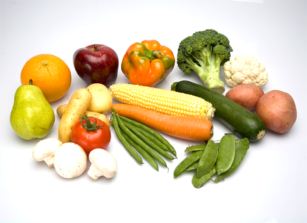Best Advice
- Eat plentifully of all good food
- Avoid preserved foods
- Nuts, chocolates and hard cheese seem to contribute more to a phosphate problem on dialysis than other foods
- Know the difference between good and bad food

Most patients exercising common sense do not have a phosphate or potassium problem on dialysis. Every patient is different!
Patients who do not pass urine may have a greater potassium problem than patients who continue to pass urine when on dialysis.
Potassium and phosphate problems should not be speculative. They should be determined by your blood tests.
Eating is a big part of your quality of life. Gratuitous prescriptive advice on diet is counterproductive; such advice is sometimes used more as a sword than a shield.
Adapt your eating according to what your physician tells you.
Prescriptive dietary advice, not based on your physical condition, needs and blood tests is frequently incorrect.
There is lots of evidence that vascular (blood vessel) calcification is associated with high blood calcium and phosphate, but also with many other factors that affect dialysis patients.There is no evidence an “evangelical” approach to calcium and phosphate contol prolongs your life.
Almost everyone seems to be an expert on diet.
The wise physician’s adage “eat plentifully of all good food” is probably the best advice you will get.
Resources
The Canberra Hospital Dialysis Out-Patients has a variety of literature on diet.
Much of this comes from the Renal Resource Centre, their website is www.renalresource.com
My surgery at Garran has a number of diet related pamphlets produced by pharmaceutical companies.

